Are you a landlord wondering how to kindly yet effectively communicate driveway usage regulations to your tenants? Establishing clear guidelines is vital to maintaining harmony within your property and ensuring everyone has access to essential amenities. By outlining specific rules regarding parking hours and designated areas, you can prevent misunderstandings and promote a respectful living environment. Curious to learn more about crafting the perfect letter? Keep reading for helpful tips and a sample template!
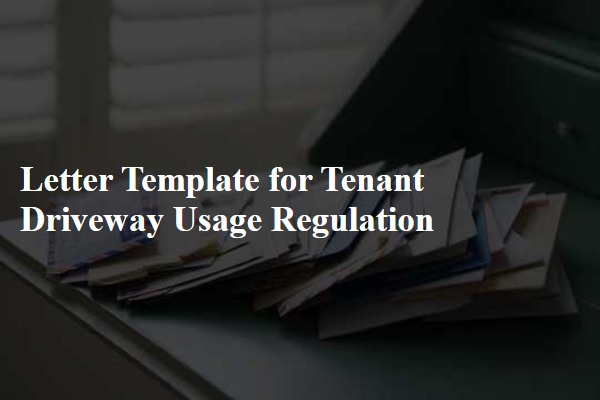
Purpose of Regulation
Driveway usage regulation aims to ensure the safety and accessibility of residential properties. This regulation specifies guidelines for parking, maneuvering, and shared usage of driveways, typically found in suburban areas like Maplewood or Oakridge. Clear lanes must be maintained for emergency vehicles, such as fire trucks and ambulances, which necessitate unobstructed access. Designated parking spaces can enhance organization within multi-unit dwellings, where multiple tenants share a driveway. Furthermore, the regulation addresses issues like noise disturbances from engines and headlights, promoting a quieter, more peaceful living environment during nighttime hours. Compliance with these guidelines fosters neighborly respect and contributes to overall community harmony, especially in densely populated residential zones.
Designated Parking Spaces
Designated parking spaces in residential complexes play a crucial role in maintaining order and safety. Each unit is typically assigned specific spots, often marked clearly to avoid confusion. For example, a complex with 50 units might allocate 25 designated parking stalls, ensuring that all tenants have access and preventing unauthorized parking. Improper use of these spaces not only disrupts the flow of traffic but also creates inconvenience for residents. Clear regulations, including penalties for violations, help to enforce these rules. Consistent monitoring by property management can maintain the integrity of the parking system, fostering a harmonious living environment for all tenants.
Time Restrictions
Driveway usage regulations play a significant role in residential settings, particularly in areas with high tenant density, such as urban multifamily complexes. Specific time restrictions may be enforced, allowing tenants access to the driveway only between designated hours, typically from 7 AM to 10 PM. This regulation aims to minimize noise disturbances during early and late hours, ensuring a peaceful environment for all residents. Additionally, enforcement may involve monitoring by property management teams or security personnel to ensure compliance and prevent unauthorized overnight parking. Clear signage indicating these restrictions can help remind tenants of the guidelines, while potential fines for violations may serve as deterrents to ensure orderly use of shared spaces.
Visitor Parking Guidelines
In multi-unit residential complexes, visitor parking regulations are crucial for maintaining order and accessibility. Visitor parking areas, typically designated near building entrances, are intended for short-term use only, generally limited to a maximum of 24 hours. Each unit may have a specified number of visitor parking permits issued, often no more than two per household, to prevent overcrowding. The parking lot layout must clearly indicate designated visitor spaces as well as any reserved spots for tenants or staff. Unauthorized vehicles occupying these spaces may be subject to towing or fines, reinforcing the importance of adhering to the rules. Regular monitoring by property management ensures compliance, enhancing safety and convenience for all residents and their guests.
Consequences for Non-compliance
Residents in multi-unit complexes often face issues regarding shared amenities, such as driveways. Clear driveway usage regulations are essential to ensure that all tenants can access their parking spaces conveniently. Violating these regulations can lead to various consequences. For instance, repeated unauthorized vehicle parking can result in towing at the vehicle owner's expense, which can exceed $200 in fees. Additionally, non-compliance may lead to disciplinary proceedings initiated by the property management, possibly resulting in fines up to $500. Consistent disregard for these regulations undermines community harmony and could eventually lead to eviction proceedings under lease agreement violations, particularly in places like Los Angeles, where strict housing regulations apply to ensure fair use of communal spaces. All tenants must understand the importance of adhering to these regulations to avoid punitive measures.

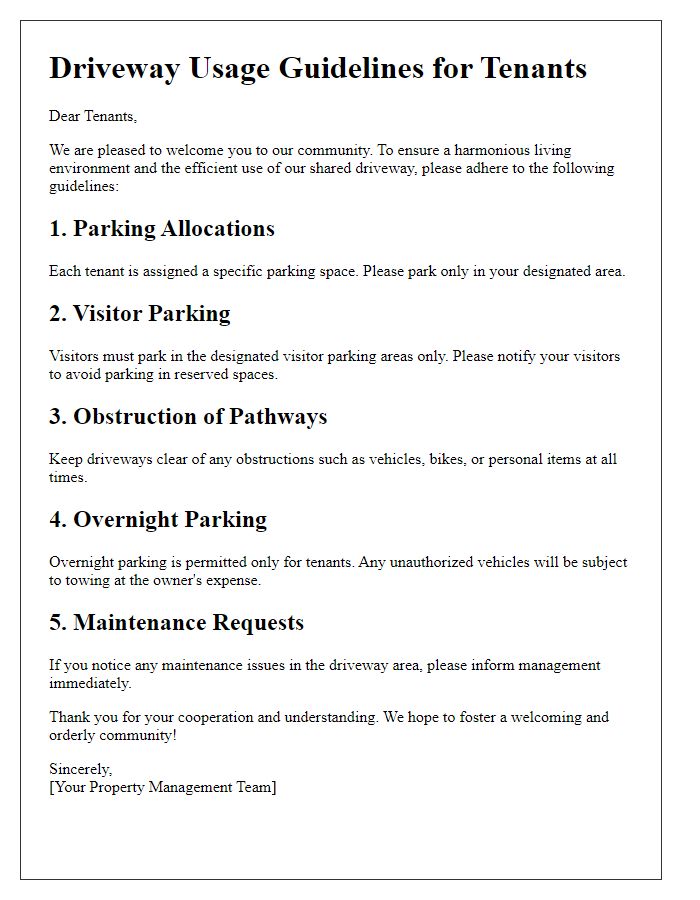
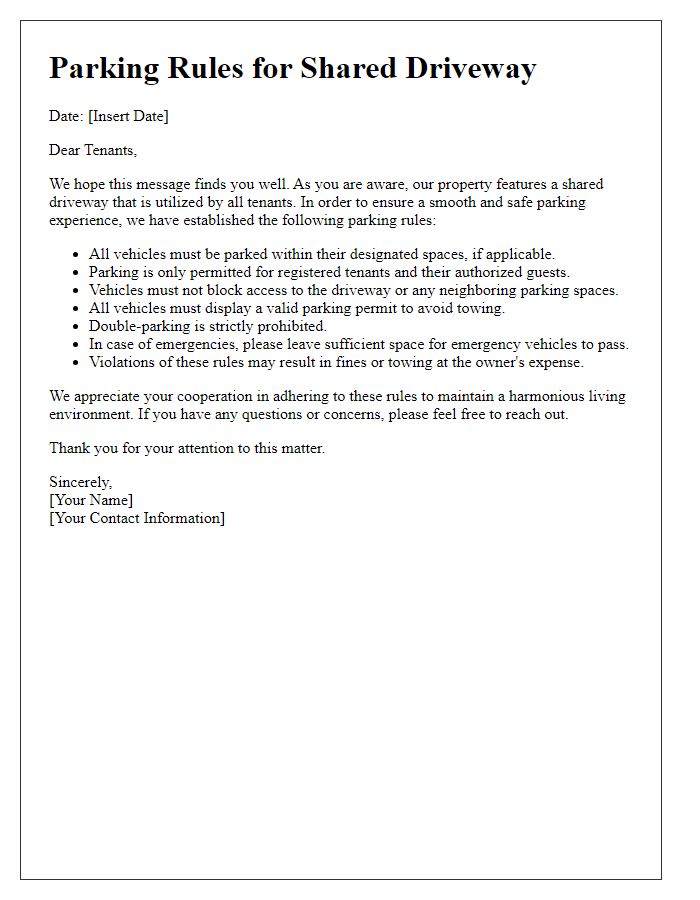
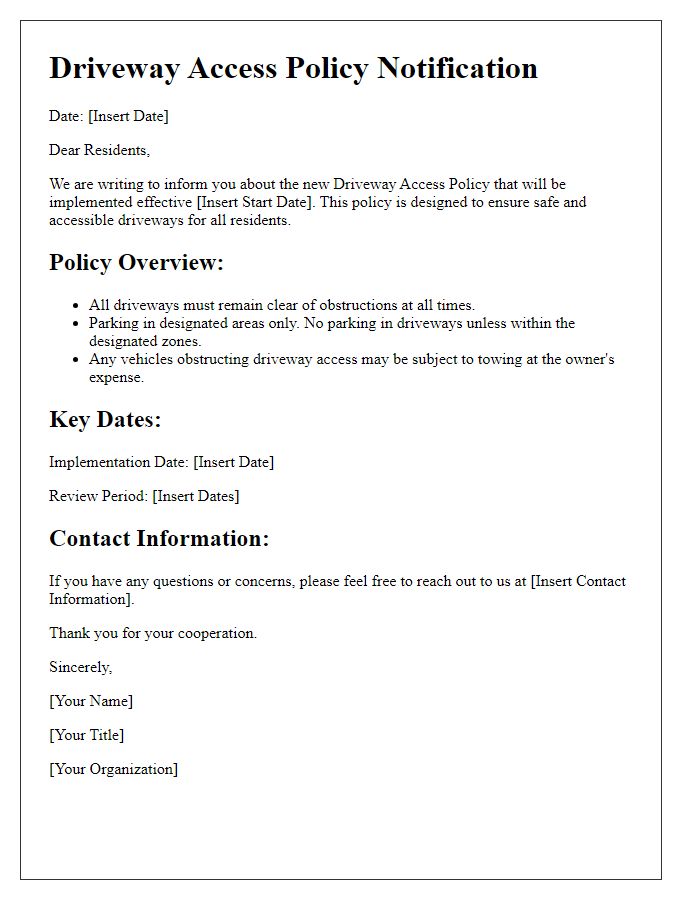
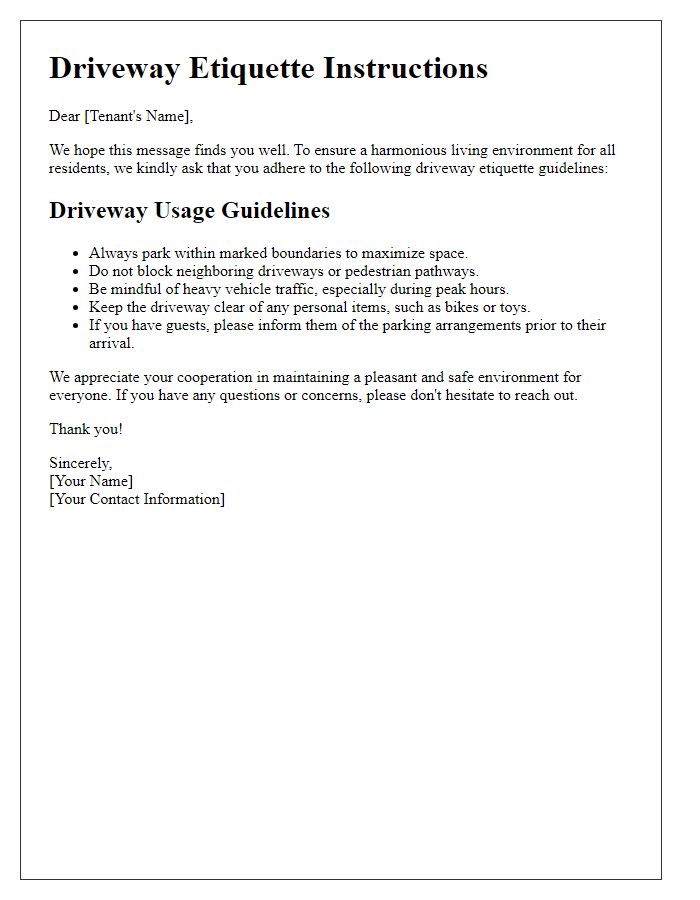
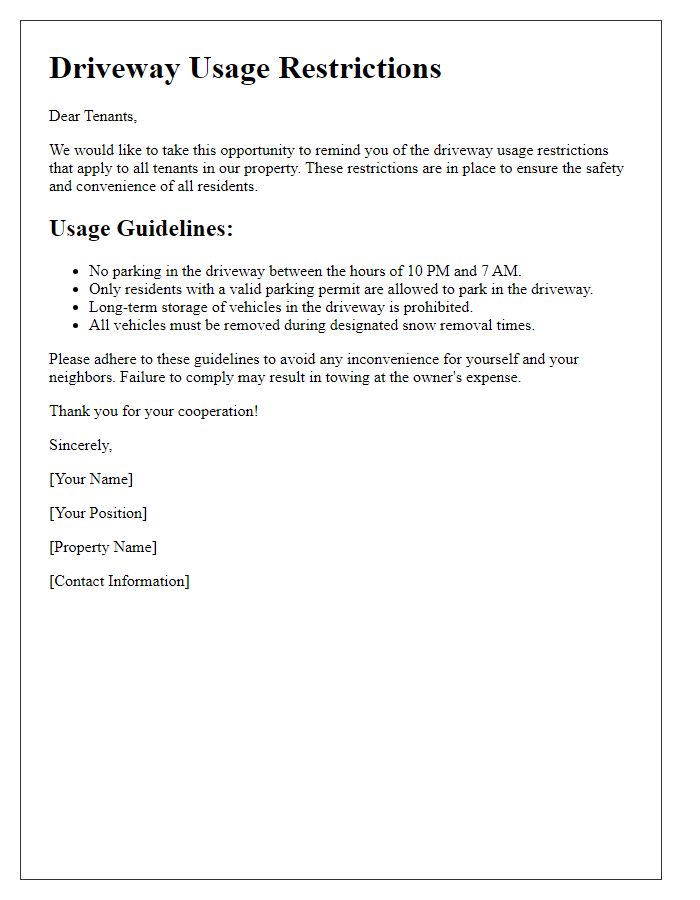
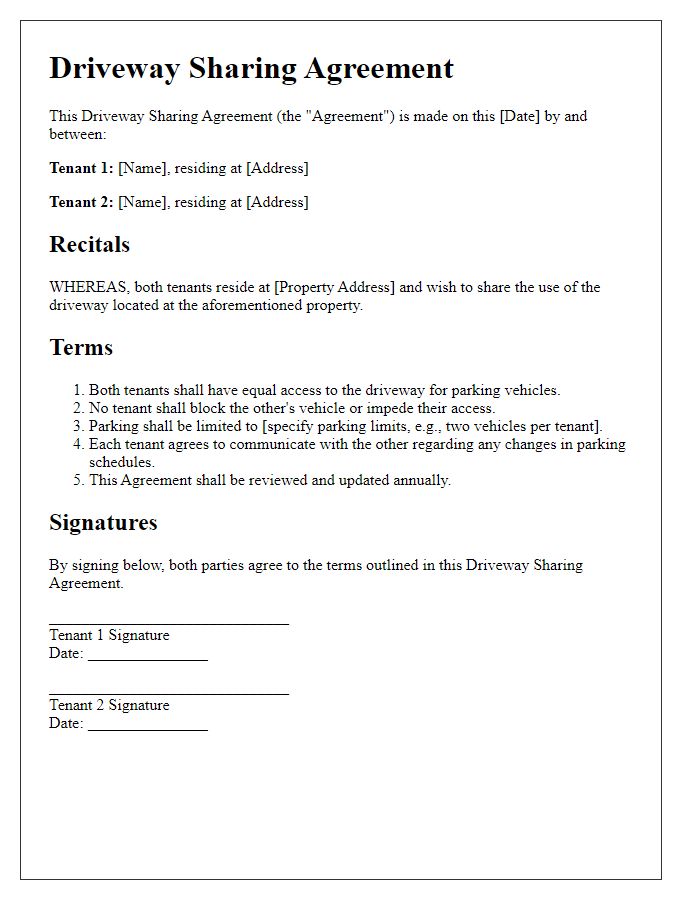
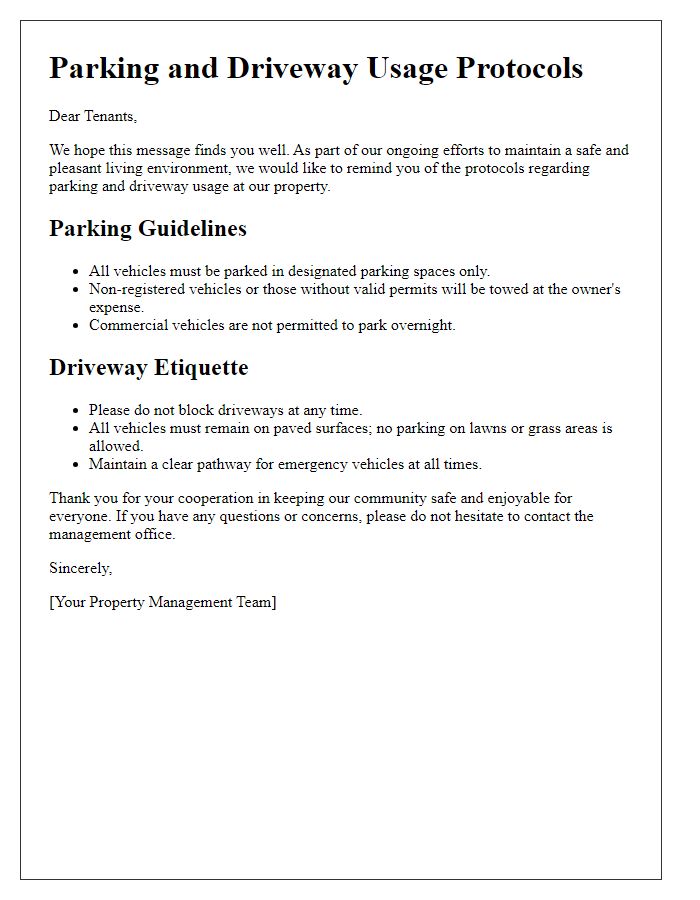
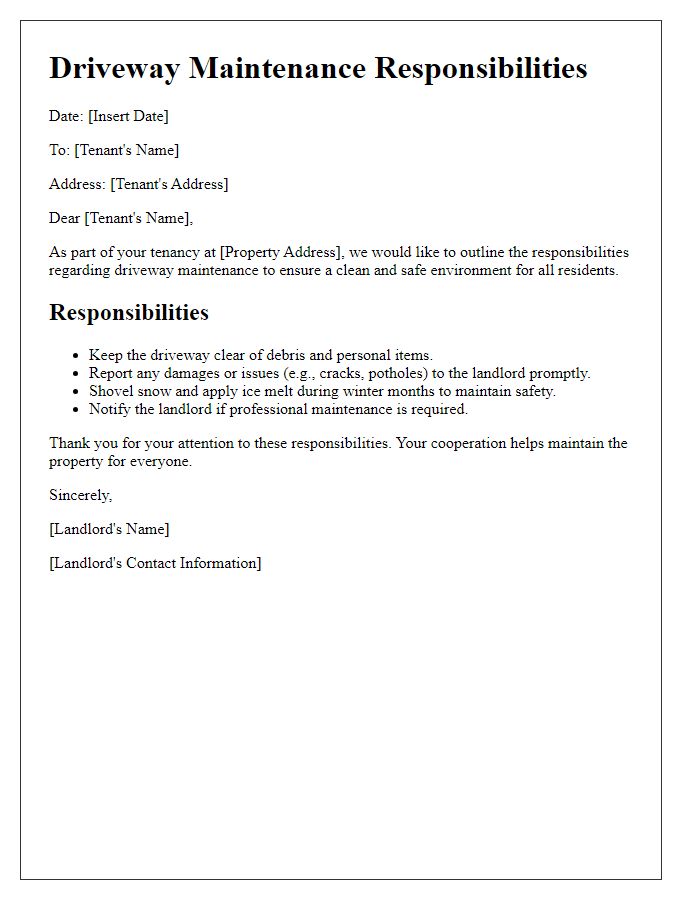
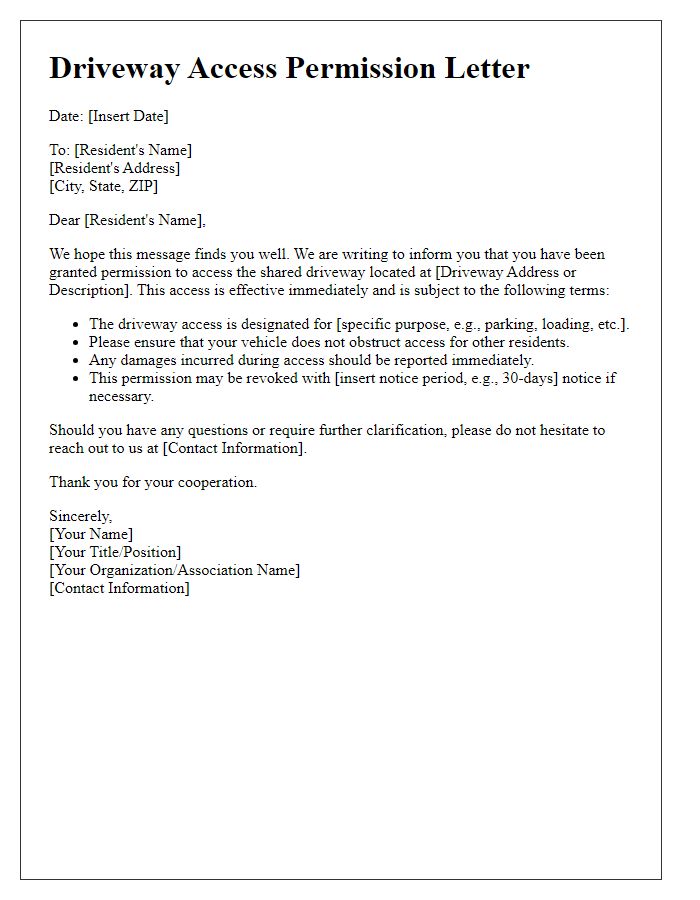
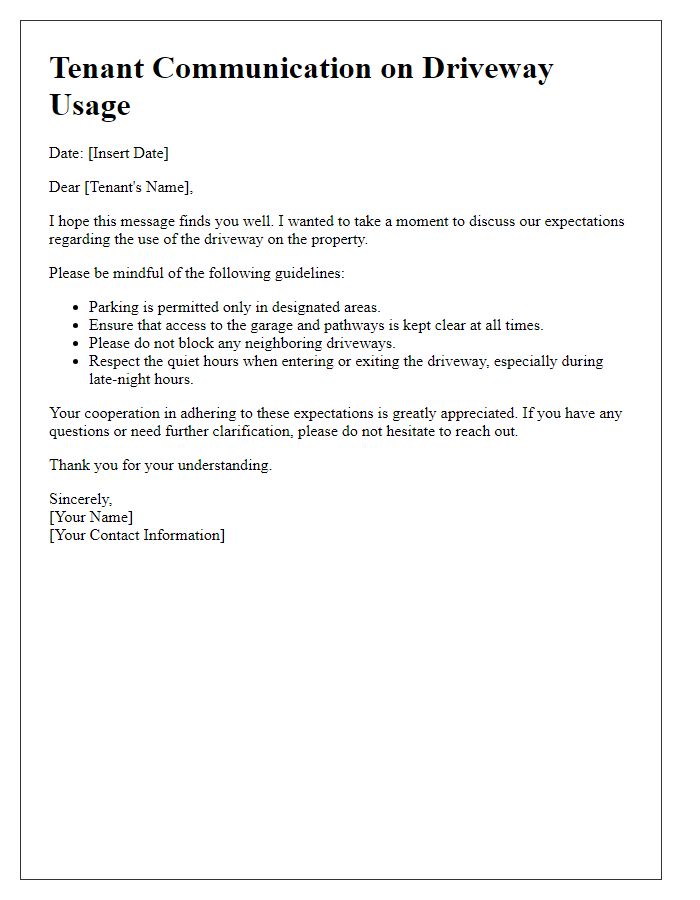

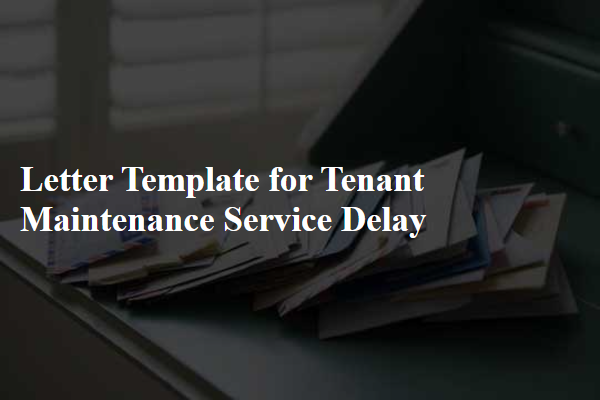
Comments